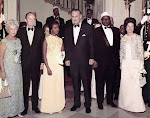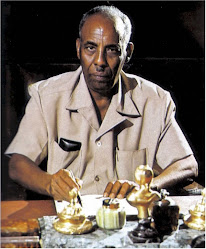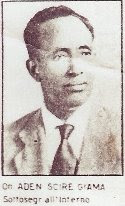The attack on the Westgate mall in Nairobi was intended to spread terror. In that sense, it worked. But if al-Shabaab's real motivation was to terrify the Kenyan people into demanding that their government withdraw its troops from Somalia, it failed dismally. Rather, Kenyans across the political spectrum have united to condemn a group that kills innocent civilians and then tweets about it.
Amid the outrage against al-Shabaab, it's important to recognise that terrorism does not happen outside of history. That is certainly true of al-Shabaab, which was born out of the Islamic Court Union, a loose formation of Islamic judicial systems that managed to restore some sort of civil order after years of a violent anarchy in Somalia, opening the Mogadishu airport and earning the support from a Somali majority. "The Courts achieved the unthinkable, uniting Mogadishu for the first time in 16 years, and re-establishing peace and security," said a 2007 briefing paper by the respected Chatman House (pdf).
From the start there was nothing ideal about the ICU; it was holding together a coalition of interests that ranged from the best of the moderates to the worst of the militants. This worried the United States so much that when George Bush was asked what he thought about the Courts, he replied: "[Our] first concern, of course, would be to make sure that Somalia does not become an al-Qaida safe haven, doesn't become a place from which terrorists plot and plan." Ethiopia, with the approval of the United States, subsequently invaded Somalia and splintered the ICU, with the moderates going into exile and the militants forming Al Shabab.
This meant that what should have been a Somali problem, requiring a Somali solution to address militancy within the ICU, became an Ethiopian and American problem. The end result was more anarchy in Somalia that now had no chance at a central authority, and the birth of al-Shabab.
In the long run, the ICU might have united Somalia into a country that had the interests of the majority at its heart – or one that was to become an outpost of terror. The point is that we don't know.
But that is only a sliver of the story in east Africa. Much of the conflict in the region can be linked to the imposition of colonial borders, whereby the Somali nation was carved up, parts of it served to Kenya and others to Ethiopia. As a result, Somali nationalists have been calling for a country in which the people who share the same language and culture can live within the same borders. But Kenyan and Ethiopian governments, in spite of the illogical nature of the colonial borders, have stood in the way of this ideal, leading to a low intensity warfare that occasionally flares up and inevitably leads to many Somali deaths. It was only recently that the Kenya government owned up to the 1984 Wagalla massacre that killed hundreds of Kenyan Somali.
The larger problem is that we live in an age where the supposedly good guys cannot claim a higher moral ground than al-Shabaab. That the US war on terror has been an act of terror is self-evident. Iraqi Body Count estimates the number of Iraqi civilian deaths to between 114, 688 and 125,275. Obama's drones in Pakistan and Afghanistan constantly humming above Pakistani and Afghani villages have caused so much fear, destruction and civilian deaths that they can only be understood within the framework of state terrorism. While arguing the numbers are contested, the Columbia Human Rights Clinic "found reports of between 72 and 155 civilians killed in 2011 Pakistan drone strikes.
In the meantime, the New York Times reports that on regular Tuesday mornings meeting, Obama "insist[s] on approving every new name on an expanding 'kill list'." In other words, the president of the United States of America has been openly engaging in extra-judicial killings.
In Kenya, the ICC has accused President Uhuru Kenyatta and his Deputy President, William Ruto of committing crimes against humanity during the 2007 post-electoral violence. In a bizarre case of multi-tasking atrocities William Ruto already appearing before the court was granted a one week leave to leave the Hague and go back to Kenya to deal with the terror attack. And true to form their allies, according to Reuters, would like to see the "ICC suspend its ongoing prosecutions…for two to three years."
When war and the rhetoric of war sanctions and normalizes the killing of civilians, we should recall Nelson Mandela's speech during his terrorism trial: "I have fought against white domination, and I have fought against black domination. I have cherished the ideal of a democratic and free society in which all persons live together in harmony and with equal opportunities. It is an ideal which I hope to live for and to achieve. But if needs be, it is an ideal for which I am prepared to die." Mandela did not say he was prepared to kill civilians to reach his ideal, rather he was ready to die for the ideal that no one group, black or white, or one people or nation, should dominate another.
Mukoma Wa Ngugi is an Assistant Professor of English at Cornell University and the author of Black Star Nairobi (Melville, 2013) and Nairobi Heat (Melville, 2011)




.jpg)











No comments:
Post a Comment